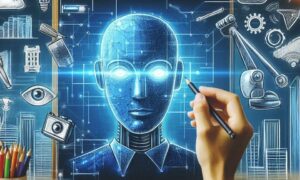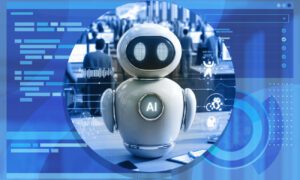Introduction
The marketing landscape is evolving at an unprecedented pace, driven by advances in artificial intelligence. Businesses are increasingly leveraging Marketing AI agents to automate, optimize, and scale their campaigns with greater efficiency. From data-driven insights to hyper-personalized customer experiences, AI-powered marketing is shaping the future of digital advertising, customer engagement, and sales strategies.
In this article, we will explore how AI agents are transforming marketing, their applications in product marketing, and what businesses need to consider before implementing AI-driven solutions.
Understanding Marketing AI Agents
Marketing AI agents are sophisticated tools powered by machine learning, natural language processing (NLP), and predictive analytics. These AI-driven systems analyze consumer behavior, automate marketing campaigns, and generate actionable insights to optimize business strategies. Unlike traditional marketing tools, AI agents work autonomously, enabling real-time decision-making and personalized interactions at scale.
Some key capabilities of Marketing AI agents include:
- Customer segmentation: Identifying and categorizing customers based on their behavior and preferences.
- Predictive analytics: Forecasting trends and consumer demands with high accuracy.
- Content optimization: Generating and suggesting high-performing marketing content.
- Chatbots and virtual assistants: Enhancing customer engagement through automated interactions.
- Campaign automation: Running and adjusting marketing campaigns in real time based on performance metrics.
AI Agents for Product Marketing
One of the most impactful areas where AI agents are making a difference is in product marketing. AI Agents for Product Marketing help businesses optimize their product positioning, pricing strategies, and promotional efforts. These AI-driven tools analyze market trends, customer feedback, and competitor strategies to refine marketing approaches and maximize revenue potential.
Key Benefits of AI in Product Marketing
- Data-Driven Decision Making AI agents collect and analyze vast amounts of market data, enabling businesses to make informed decisions on product launches, pricing strategies, and promotional campaigns.
- Personalized Marketing Campaigns AI-driven personalization allows businesses to create tailored experiences for different customer segments, improving engagement and conversion rates.
- Competitive Analysis AI agents continuously monitor competitors’ strategies, identifying gaps and opportunities for businesses to differentiate their products effectively.
- Automated A/B Testing AI-powered systems conduct rapid A/B testing on marketing creatives, landing pages, and messaging to determine what resonates best with the target audience.
Implementing AI Agents in Your Marketing Strategy
While AI agents offer significant benefits, businesses must strategically implement these technologies to maximize their potential. Here are some essential steps to consider:
1. Define Clear Objectives
Before integrating AI-driven marketing tools, businesses should outline their goals. Whether it’s improving lead generation, enhancing customer experience, or increasing sales, having clear objectives will help in selecting the right AI solutions.
2. Choose the Right AI Tools
Different AI agents specialize in various aspects of marketing. Businesses should assess their needs and choose AI tools that align with their marketing goals, whether it’s chatbots, predictive analytics, or content automation.
3. Integrate AI with Existing Systems
Seamless integration with CRM, email marketing platforms, and analytics tools is crucial for AI agents to function effectively. Ensuring compatibility with existing marketing infrastructure will enhance efficiency and data utilization.
4. Monitor and Optimize Performance
AI-powered marketing is an ongoing process. Businesses should regularly analyze AI-driven insights, adjust strategies accordingly, and continuously optimize campaigns to achieve the best results.
The Future of AI in Marketing
The future of AI in marketing is promising, with continuous advancements in machine learning, big data, and automation. Here are some trends to watch:
- Hyper-Personalization: AI will enable businesses to create ultra-targeted marketing campaigns that cater to individual preferences and behaviors.
- Voice Search Optimization: As voice assistants become more prevalent, AI will play a key role in optimizing content for voice search queries.
- AI-Powered Influencer Marketing: AI-driven influencer analytics will help brands identify the most effective influencers and optimize collaboration strategies.
- Advanced Sentiment Analysis: AI will refine sentiment analysis techniques to provide deeper insights into customer emotions and opinions.
Conclusion
AI-driven marketing is no longer a futuristic concept—it is a reality transforming the way businesses interact with their audiences. By leveraging Marketing AI agents and AI Agents for Product Marketing, companies can achieve greater efficiency, deeper customer engagement, and data-backed decision-making. As AI technology continues to evolve, businesses that embrace AI-powered marketing will gain a competitive edge in the digital landscape.



































